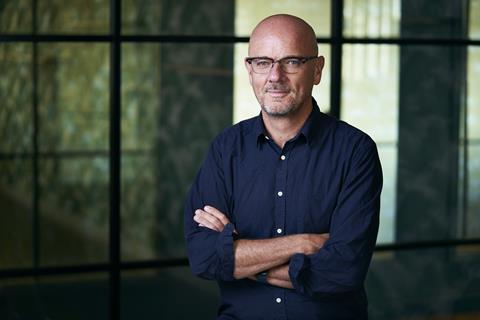Patrick Holland urges joined up thinking to deal more effectively with bullying and harassment

Banijay UK chief exec Patrick Holland has admitted reflecting on whether he could have acted sooner over the misconduct allegations towards sacked MasterChef host Gregg Wallace.
Wallace was dismissed from the Shine-produced culinary format in July after a Banijay report substantiated more than 40 allegations against him, mainly related to inappropriate sexual language and humour.
Holland, who was controller of BBC2 between 2016 and 2021 before joining Banijay in 2022, said he was aware Wallace had been “read the riot act” in 2018 regarding allegations of inappropriate behaviour and told an RTS East event in Cambridge yesterday that he has thought about how the allegations had been dealt with.
While an independent inquiry found all substantiated claims against Wallace had taken place before Banijay’s acquisition of Endemol Shine Group, he emphasised this was not “exonerating Banijay or what happened with my predecessors” in relation to the incidents.
“Could I have acted earlier? [The problem] was that there was no sort of smoking gun, there was no complaint that said you need to look into this at a particular time.
“But the fact that there were so many substantiated allegations over such a long period of time over all sorts of different things was just horrible.”
Wallace has made numerous claims on social media that he was not supported on the show, after revealing this year that he was diagnosed with autism. He is now suing the BBC.
In a far-ranging discussion with former Channel 4 News chief Dorothy Byrne, Holland suggested watchdog CIISA (Creative Industries Independent Standards Authority) could have a role to play in improving bullying and harassment claims in the wake of Wallace’s sacking.
He acknowledged the difficult challenge to ensure accusations are taken seriously while no-one is defamed, but said CIISA’s tracking of incidents across different shows would help counter offenders.
“The question as a freelance industry is how, when an individual is inappropriate in more than one place, [can we ensure] it is seen as more than being just that isolated incident,” he said.
“At the moment, there is no real way of being able to say that about an individual who is inappropriate in the workplace. That’s something that CIISA wants to try to introduce, to be able to track people’s behaviour so those people don’t get jobs.”
One of the much-discussed issues facing the watchdog, however, is securing sufficient funding for it to carry out its duties. Currently, CIISA relies on voluntary annual contributions from industry bodies, prompting it to update its funding model to give greater clarity on the organisations supporting it financially.
Holland also underlined the importance of independent complaints bodies by pointing to a recent internal survey of Banijay staff found that the Tell Jane hotline, which collates allegations of harassment, was more popular than its own in-house phone line.
“People were saying they were using Tell Jane a bit more than they were using our internal service. We thought it was good to have a helpline, but it actually seems better to have independent help. It just feels like it’s another step removed.”
During the 90-minute conversation, Holland also said that US interest in scripted co-productions was beginning to warm up and reiterated that UK commissioning processes need reforming to improve risk taking.
“Television is really expensive to make and it’s really bureaucratic, and decision-making goes up to the top of the pyramid,” he said. “What can happen as a result of that is that people are ever more risk averse as you get up there.
“It sounds precious, but I’m a Liverpool FC fan and when I was at the BBC I used to say to the team that if you’re a commissioning editor you’ve got to feel the weight of the shirt.
“There’s a responsibility that comes from [commissioning], you have to really, really think through whether your show will move things on, even if sometimes you don’t get it right.”








No comments yet